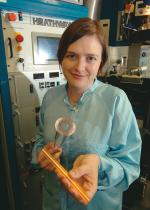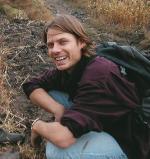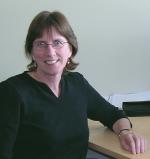Top guns of science attracted to Adelaide
 Science Science
The University of Adelaide's respected research capabilities have been significantly enhanced by the appointment of three of the world's brightest young scientists. The scientists are Professor Tanya Monro, who will focus on photonics research; Professor Diane Mather, a world leader in plant breeding; and Professor Alan Cooper, who will bring a biotechnology focus to the evolutionary biology research unit in Adelaide. "We are proud to attract to South Australia brilliant, innovative minds that will invigorate our intellectual life and provide leadership in key areas of importance for economic development," said Professor Peter Rathjen, Executive Dean of the Faculty of Sciences, University of Adelaide. Tanya Monro Professor Monro will help to establish a significant photonics research effort in South Australia, involving the Defence Science and Technology Organisation (DSTO) and the university. Considered to be one of the youngest academics to receive a Chair in Physics, Professor Monro, 32, has commenced her position as Professor of Photonics in the School of Chemistry and Physics. Professor Monro has spent the past six years in Southampton, where she and her research team developed new technology for the production of a special type of optical fibre called "holey fibre" or "microstructured fibre". Holey fibres contain an arrangement of micron-sized air holes that allow the optical properties of the fibre to be tailored in innovative ways. Professor Monro's group were also the first to apply this holey fibre geometry to optical fibres made glasses other than silica. "Optical fibres have made a huge impact in the telecommunications industry. One of the aims of our research is to develop new types of optical fibres that can be used for applications in other areas such as industrial processing, displays, biomedical sciences and beyond," she said. Alan Cooper Professor Cooper, an Australian Research Council (ARC) Federation Fellow, will link up with the rapidly growing evolutionary biology research unit in Adelaide, which involves the University of Adelaide and the South Australia Museum. The Federation Fellowship has allowed Professor Cooper and his colleagues to establish an Australian Centre for ancient DNA research at Adelaide. He arrives in Adelaide later this year. After briefly working in the US, Professor Cooper moved to Oxford University where he has been the Director of the Henry Wellcome Ancient Biomolecules Centre since 1999. His research will investigate issues such as environmental change and how this relates to climate and human factors. "The key idea behind [this] is to reveal how things have changed over time, so that current variations and events can be properly understood and interpreted," he said. "For example, by studying the impacts of climate change on animal populations over the past 50,000 years we can much better anticipate what the effects of current climate change will be." Diane Mather Professor Mather has joined the School of Agriculture and Wine as a Professorial Research Fellow in the Discipline of Plant and Pest Science and the Molecular Plant Breeding Cooperative Research Centre (CRC). Professor Mather is a world leader in plant breeding and her research has focused on mapping genes that affect economically important traits in plants, particularly barley. Previously a Professor of Plant Science at McGill University, Montreal, Canada, Professor Mather's research has included identifying the regions of chromosomes that encode for traits that affect grain and malt quality. As a research program leader in the Molecular Plant Breeding CRC, Professor Mather will work with researchers in Adelaide, across Australia and internationally, to develop and apply new technologies for crop improvement. "Adelaide provides an excellent environment for research in plant genetics and for the application of research outcomes in molecular plant breeding," Professor Mather said. Story by Howard Salkow and Lisa Edwards
|







